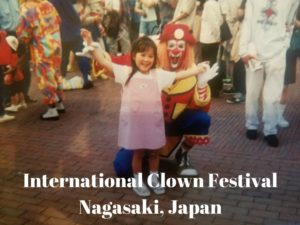What A Clown Can Teach You About Public Speaking
As many of you know this past week has been National Clown Week.
Just kidding – Most of you have no idea that it was national clown week.
It’s the year 2018 and I’ve been become known to many as a speaker and a trainer and spend most of my time in front of the classroom or an audience. I have spent most of my life on stage.
However, you might be surprised to know that, from 1990 to 2000, I toured the world as a professional clown.
Those days were some of the best days of my life. I truly had a tremendous passion for being clown. It is the greatest job in the world…making people smile and laugh is a perfect way to make a living!
Those days of wearing the big red nose the orange wig the colorful outfits and, naturally the big shoes, taught me a lot about what I use in business today. While I loved doing the shows, I knew that to be in “Show Biz”, I would also have to do the business of selling my performances!
I needed to be hired.
So, every day I practiced, practiced, practiced. And, when I was done, I practiced some more. I brought myself up to what I believed was a professional level.
Soon I was able to catch the attention and sell myself to the New York Yankees. I became the head entertainer for all the Yankees events performing for the players and their families.
Working with the Yankees brought me something even more exciting. My name was getting out there and people were really enjoying what I was doing.
Like a dream come true, I was recognized for my talents and I was asked to represent the United States at the International Clown Festival in Nagasaki, Japan.
What an honor.
I got to share the stage with performers from all over the globe – Russia – England – Argentina – Belgium – Germany – Holland – Canada. It was a great experience and something I will never forget. I also learned some valuable lessons from that experience.
I was somebody from New Jersey heading for my first time to perform in Japan.
Boy did it make me nervous.
Why?
Plain and simple, I didn’t speak Japanese.
What was I going to do? What was my show going to be like? How am I going to perform in front of these people?
It was there I learned a great lesson that I have carried with me through my business and public speaking career and a lesson I want to share with you!
You don’t have to say a thing to make an impression on your audience.
In preparing for Japan, I learned the power of non-verbal skills and how to communicate with an audience without saying a single word. You see, as clown, when you have an audience of anywhere from 500 to 1000 people, you must learn how to appear bigger than life.
You must stand out simply because everyone is paying attention to you
The same goes when you’re a speaker… you must to be bigger than life.
You’re on the stage and everyone is paying attention to you.
Well, you better hope they are. If they’re not, you’re certainly not doing your job well and will soon lose your audience.
A Speakers Nightmare!
Whether you’re a clown, speaker or trainer or just someone in front of an audience, there are certain things you must remember to get your message across.
- A public speaker should appear “bigger than life.” (This has to do with demeanor, using space, stage presence and an inner mind-set.)
- Members of an audience will size you up from the moment they see you and decide, at least subconsciously, if you’re worth listening to or watching.
Here are some of my tips on how to make yourself bigger than life by using non-verbal skills.
GESTURES
Your hands can be a great tool for getting a point across. Learning to use your hands for emphasis is invaluable to a speaker.
- Gestures can be used to emphasize the main points of your presentation.
- Good gestures allow your audience to better follow your presentation and to follow your train of thought.
- Gestures may be used to involve your audience in what you’re saying. (Gestures Add Impact to the Presentation)
EYE CONTACT
- Eye contact forms a very personal bond with another person.
- It’s essential for establishing good rapport with an audience.
- Looking down and glancing around gives the impression of being scared and not wanting to be there.
FACIAL EXPRESSIONS
Proper facial expression will add emphasis to all presentations and are one of the biggest components of non-verbal skills.
As a clown, one of the first things you learn to work on is how to have an expressive face that works for you. Your face must be welcoming to your audience.
When applying clown make up, you are taught to look in the mirror and make silly faces and so you can see which part of your face moves the most. Your eyes? Cheeks? Mouth? Does your forehead have its own personality?
Certainly, as speaker you get to use facial expressions to connect with your audience. They are essential.
As a speaker, you’re delivering a message. Just like any other clown, actor or entertainer, you are being watched from the moment you STEP UP. Facial expressions will help you convey your message and connect you with your audience.
The expression on your face reinforces what you are saying. It adds nuance to your meaning and can go a long way toward keeping the attention of your audience. Animated facial expressions are potent tools for involving your audience with you as a presenter.
- Set the Mood with Proper Expressions
- Use Facial Expressions to Support Points
- Practice Making Facial Expressions Naturally
Research has shown that a very high percentage of learning takes place through the sense of sight.
In fact, we are told that the average person learns 83% by seeing.
Hearing is next highest with only 13%.
As presenters, those figures should have a tremendous impact on what we do. Obviously, we must give our listeners something to see as well as to hear. (They must go together.)
Start clowning around and use these tips to help you – STEP UP – STAND OUT and SELL MORE!
See you “Center Stage”
Tommy
P.S. For more tips, download 10 Tips for Better Public Speaking or contact us learn more about individual and group coaching programs for building public speaking and presentation skills.
